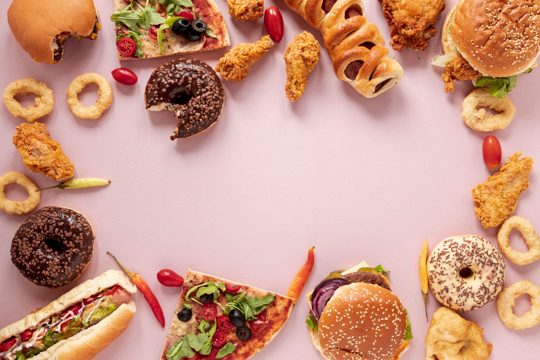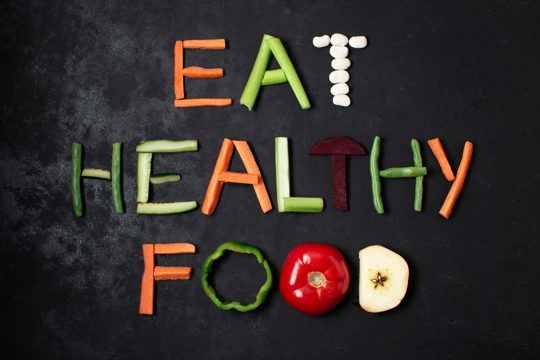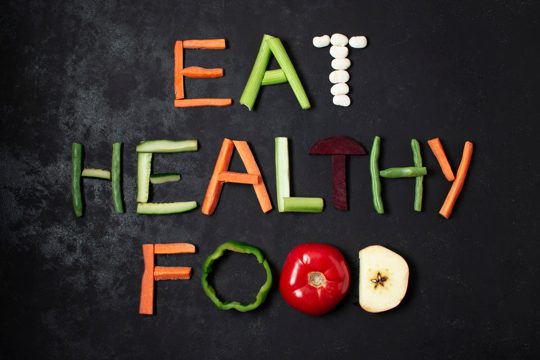Is Food Addiction Real? What the Experts Say
Food addiction is a subject of great debate amongst health professionals and scientists around the globe. There are robust discussions about whether a person can be 'addicted' to food in the same way someone can become addicted to administered drugs like heroin or cocaine. The subject is complex, with many factors to consider from genetic predisposition to environmental triggers.

Let's delve into what experts have to say about food addiction. The topic of food addiction spawns extensive debate among global health professionals and scientists.
They intensely debate whether the dependency on food mirrors that to strong drugs such as heroin or cocaine. The issue is multifaceted, involving considerations from genetic predisposed conditions to environmental factors.
Experts carry significant opinions regarding this issue of food addiction. Let us probe into the viewpoints of these experts on the subject.
Definition of Food Addiction
The concept of food addiction is closely related to the idea of compulsive overeating. This involves a person becoming overly focused or obsessed with food to the extent that it negatively impacts their life. Eating becomes more than a mechanism of survival; it turns into an obsessive behavior paralleled to substance abuse.

Clinical definitions of food addiction place emphasis on emotional dependence on ingestive behaviors rather than on any particular food item. Food addiction is strongly associated with compulsive overeating.
This addiction is characterized by an individual's extreme obsession with food to the degree that it disruptively affects their daily life. This fixation on eating is not merely about survival but develops into a certain kind of obsession similar to drug abuse.
Food addiction doesn't concern a specific kind of food, according to clinical definitions. Rather, it focuses on psychological reliance on eating behaviors.
Neural Correlation Analysis
Numerous neuro-imaging studies suggest that addictive foods have similar effects on the brain as illegal drugs. Certain ingredients such as sugar, fat, and salt, appear to stimulate the brain’s reward system in the same way that addictive drugs do. The release of dopamine, a neurotransmitter related to pleasure signals, affects the brain similarly when consuming certain foods or drugs.

Thus, suggesting a potential biological and neural basis for food addiction. Many neuro-imaging studies draw parallels between the effects of addictive foods and illicit drugs on the brain. Key ingredients like sugar, fat, and salt seem to precipitate the brain's reward system similarly to habit-forming drugs.
This interaction triggers the secretion of dopamine, a neurotransmitter linked to the perception of pleasure. The brain reacts in an alike manner either when consuming particular foods or drugs. Therefore, this provides a possible explanation of food addiction on a neurological and biological level.
Health Consequences of Food Addiction
Food addiction can have severe implications on a person's health, much like drug or alcohol addiction. The consequence extends beyond physical ailments like obesity, diabetes, or heart diseases. It can also lead to mental health issues such as low self-esteem, depression, or anxiety.

Prolonged addiction-led overeating patterns can indeed increase the individual's risk for many serious health concerns. Addiction to food can significantly impact a person's health, comparable to the effects of drug or alcohol abuse. Its consequences aren't merely limited to physical health issues such as obesity, diabetes, or heart diseases.
It often goes farther, contributing to mental health problems like low self-esteem, depression, or anxiety. Sustained overeating due to this addiction pose further risks. Indeed, these persistent patterns strongly elevate the likelihood of encountering severe health concerns for the individual.
Genetic Predisposition to Food Addiction
Certain studies suggest a genetic component to food addiction. Some people might have genes that increase their probability of becoming addicted to food.

This innate risk can be present at birth, but may only be triggered under certain environmental factors or experiences. Understanding these genetic influences give insights into why some people are more susceptible to food addiction.
Research indicates that genetics may play a role in food addiction. It is plausible that some individuals possess genes that amplify their likelihood of developing an addiction to food. This inherent vulnerability could be evident from birth, though it may only activate in response to specific environmental circumstances or experiences.
An appreciation of these genetic factors can offer comprehension of why certain individuals are more prone to food addiction. Hence, understanding the genetic underpinnings could shed light on the susceptibilities to food addiction in people.
Influence of Advertising in Food Addiction
Advertisers intentionally craft advertisements to make food seem irresistible. The repetitive exposure to these messages, and their association of consumption with happiness and success, trains our brains over time to crave these types of foods. In combination with an addictive predisposition, this bombardment of gastronomic stimuli can contribute significantly to fostering a physiological dependency.

Thus, modern marketing techniques play their part in promoting addictive behavior related to food. Advertisers often design ads to make food items appear exceedingly appealing. We are repeatedly exposed to these messages linking food consumption with joy and accomplishment.
Over time, such associations steadily condition our brains to desire these foods. The intersection of this brain training and individuals' predisposition to addiction can heighten development of a physical reliance on certain foods.
Therefore, contemporary advertising methods reinforce food-related addictive behaviors.
Role of Highly Processed Foods
Hyper-palatable foods, specifically the highly processed ones bursting with sugar, salt, and unhealthy fat, are of special concern in this dialogue. These erode willpower by making us continually hungry, contributing to excessive caloric intake.

Their tempting taste and convenience make overshooting your energy requirement incredibly easy. This behavior often parallels addiction, explaining its common incidence in the modern world.
Unhealthy, yet tasty foods, particularly those that are highly processed and contain large amounts of sugar, salt, and harmful fats are of significant importance in this discussion. These particular foods can diminish our self-control by keeping us in a state of persistent hunger and pushing us to consume more calories than necessary. The irresistible taste and the easiness of these foods make exceeding our energy requirements a breeze.
Such consumption can create a pattern resembling addiction, which accounts for its frequent occurrence in contemporary society. Hence, indulgence in these delicacies may align with addiction, illustrating its repeated appearance in today's era.
How to Spot a Potential Food Addiction
Spotting signs of potentially addictive behavior towards food is crucial for early detection. They might involve uncontrollable cravings for certain foods, caloric indulgence even when full, feelings of guilt post consumption, or defending the consumption patterns when met with concern. Watching out for these signs in oneself or in loved ones can help circumvent the deep-seated detrimental progression that food addiction can turn into.

Identifying early indicators of a possible addiction towards food is vital. These signs can include irresistible urges for particular kinds of food or continuing to overeat despite being full. Additionally, feelings of guilt after eating, or defending the way one eats when there's concern may be evidence.
Being vigilant for such habits in either yourself or those close to you is important. Doing so can help thwart the harmful developments that can spiral into a severe food addiction.
Recognizing The Emotional Background
Insight into an individual’s emotional health is equally important when looking at food addiction. Many people turn to food to deal with stress, numbing emotional pain, loneliness, or even boredom. Utilizing food as emotional armor becomes an unhealthy coping mechanism and gradually triggers addiction.

By understanding this link between emotional health and food, necessary steps can be taken to disentangle the dangerous pattern. Understanding a person's emotional well-being is just as vital when examining food addiction. Frequently, individuals use food as a way to manage feelings of stress, to dull emotional suffering, to battle loneliness, or to alleviate boredom.
The use of food in this way evolves into an unhealthy method of coping and over time leads to addiction. There is a significant connection between one's emotional health and the food they consume. Recognizing this correlation is crucial for taking the necessary measures to break this harmful cycle.
Food Addiction among Children and Adolescents
Food addiction is not just an adult problem, it has been making inroads among children and adolescents too. Easy access to junk food, sedentary lifestyle and increased exposure to food advertising, combines for cultivating unhealthy food habits from a young age. This behavioral pattern can subsequently make them vulnerable towards developing addiction toward these predominantly unhealthy choices.

Preventive measures must accordingly include interventions tailored to younger population as well. Addiction to food is a problem affecting not just adults, but also kids and teenagers.
The wide availability of junk food, inactive habits and increased food advertising all contribute to the promotion of bad eating habits from a very young age. This regimen of behavior can result in a susceptibility to developing an obsession with essentially unhealthy food options. As a result, solutions to prevent food addiction need to include strategies tailored to the youth.
Overall, it is crucial to address this issue at a young age for better prevention.
Food Addiction as a Social Issue
Given its severe health implications, food addiction cannot be seen merely as a personal issue, but as a broader societal challenge. Its addressing goes beyond mere pharmaceutical measures and entails social and structural changes.

It suggests the need for policy changes, like regulating food quality, promotion strategies, education surrounding conscious nutrition choices. The steps are integral for a shift toward a healthier society free from food compulsion. Considering the serious health consequences, food addiction represents more than a personal struggle, expanding into a wide-ranging societal concern.
The solution should not only depend on pharmaceutical tactics but incorporate alterations to society and framework as well. The complex nature of resolving this issue points towards the importance of policy reform such as regulating the quality of food and promotional schemes.
Additionally, educational strategies about mindful nutrition choices are also essential. This multifaceted approach is crucial to transitioning towards a healthier society, free from the influences of food addiction.
Physical Manifestation of Withdrawal Symptoms
Like other forms of addiction, cases of food compulsion also see withdrawal symptoms, usually resulting from sudden reduction of addictive ingredients. This manifests most commonly as increased anxiety, irritability, or even flulike symptoms in some severe cases. Despite not being life-threatening like drug or alcohol withdrawal, this phase can be highly discomforting and represent a critical aspect of this addictive behavior.

Food compulsion, much like other addictions, often exhibits withdrawal symptoms typically caused by a sudden decrease in addictive ingredients. These symptoms usually come to light in the form of increased anxiety and irritability. Furthermore, in some extreme instances, they can even mimic flulike conditions.
While not as dangerous as withdrawals experienced from substance abuse like drugs or alcohol, this phase can be quite unsettling. This stage further signifies a vital characteristic of this addictive behavior.
Treatment of Food Addiction
Treatment of food addiction, similar to other addiction strategies, involves both counseling and lifestyle modifications. Cognitive Behavioral Therapy is one approach used in managing addictive eating patterns to address both emotional and behavioral aspects tied with the disorder. Along with professional help, personal steps like adopting a healthy diet, exercise and garnering a supportive network play a crucial role in recovery.

The approach to handling food addiction, akin to other addictions, includes counseling and lifestyle adjustments. Therapeutic strategies like Cognitive Behavioral Therapy are used to tackle compulsive eating practices by addressing the emotional and behavioral dimensions involved with the disorder.
This is paired with lifestyle changes such as following a wholesome diet and incorporating regular exercises. In addition to these changes, seeking out professional assistance is key.
Likewise, building a supportive network is vitally important in assisting with the recovery process.
Integrating Mindfulness in Eating Habits
Integrating mindful practice in selecting and consuming food acts as a tool in breaking free from compulsive patterns. It engages individuals in thoughtful and purposeful eating, forcing attention on the taste, texture, and sensation while eating.

Mindful eating helps individuals enjoy their food more, satiating cravings, lowering the possibility of overeating and fostering healthier relationship with food. Practicing mindfulness in choosing and eating food serves as a mechanism to escape habitual behaviors.
It encourages people to actively engage in being consciously aware of the process of consumption where concentration is centered on the taste and texture of the food. The sensation derived from each bite is also paid attention to.
This approach amplifies one's appreciation of food, satisfying desire for flavor and potentially reducing the habit of over-consumption. This also promotes healthier attitudes and habits towards food.
Support from Family and Friends
Support from loved ones amplifies any treatment journey importantly for food addiction. Just knowing that there are people aware of their struggle, acknowledging their efforts and standing beside them, bolsters the sufferers ability to make changes. Their support, patience, and understanding are primary assets in facilitating recovery and mitigating relapes during the journey.

Having the support of loved ones greatly enhances the treatment process for food addiction. It's significant for these individuals to know that others are taking notice of their struggle and commending their efforts. The act of standing beside them provides strength and confidence in their ability to bring about necessary changes.
The understanding, patience, and support of their loved ones serve as key tools in aiding recovery. These factors also help to prevent any relapses, ensuring a smooth recovery process.
Role of Pharmacotherapy
Drugs that act on different stages of food addiction has proven helpful adjuncts to psychological intervention and lifestyle changes. There aren't any FSSAI approved drugs specifically for food addiction yet, but certain medications targeted at obesity, de-addiction and underlying mental health disorders have shown efficacy in curbing related symptoms. Medical help then supplements the overall treatment to enhance chances of breaking free from the addictive cycle.

Medications impacting various stages of food addiction have been effective in supplementing psychological assistance and lifestyle modifications. There are currently no drugs explicitly sanctioned by FSSAI for treating food addiction.
However, certain prescribed drugs aimed at obesity, de-addiction, and co-existing mental health disorders have demonstrated effectiveness in mitigating associated symptoms. Consequently, medical intervention has a key role in complementing the holistic treatment program. This notably increases the probability of successfully breaking the cycle of addiction.
Exercise – A Vital Tool Against Addiction
Consistent exercise serves as an effective tool in combating food addiction by allowing better control over cravings. Physical activity increases mood-boosting chemicals in brain, reduces stress, fostering feelings of calmness and pleasure. It helps distract, disrupt craving cycles and allow healthier regulation of emotions.

Running, jogging, yoga, any activity if performed regularly can make a potent ally in battling addiction. Regular physical exercise can be a powerful weapon to fight food addiction as it helps manage cravings more efficiently.
Engaging in physical activities triggers a rise in chemicals that enhance mood, consequently alleviating stress and promoting sensations of peace and enjoyment. It serves as a diversion and breaks the cycle of persistent cravings, facilitating better emotional balance. Activities such as running, jogging, or yoga, when done on a consistent basis, can significantly aid in overcoming addiction.
In essence, consistent engagement in any form of exercise can substantially strengthen the fight against food addiction.
Personalized Approach Toward Recovery
Individual attention toward the unique barriers regarding environmental factors, emotional triggers or genetic susceptibility emphasise on the person centered approach for recovery from food addiction. Each sufferers situation is unique hence a personalised approach consisting of a little from each -medication, therapy, mindful practices, determining the suitability by trial and personalised modification makes difference. Each recovery road will therefore be unique.

The person-centered approach for overcoming food addiction involves focusing on individual factors such as unique environmental, emotional, or genetic hurdles. As every person's circumstances are singular, recovery should similarly follow a tailored plan.
Components like medication, therapy, and mindful practices should form part of personalized plans, with suitability determined through trial and subsequent adjustment. Thus, this individualized tweaking leads to unique recovery pathways for each sufferer. Therefore, every route to recovery will inherently be distinct.
Positive Mental Health = Healthy Relationship with Food
A significant step towards breaking free from addiction loop is by practicing positivity and engaging in activities that boost mental health. By building a strong mental health foundation, anxieties about food can be diminished.

Accepting the power of food addiction, gives power to take control over it. Positivity along with other substantial habits breed a healthier bond with food.
Taking a substantial step towards escaping the addiction cycle involves adopting an optimistic approach and participating in mental health enhancing activities. The construction of a robust mental foundation can alleviate food-related anxieties. Acknowledging the impact of food addiction empowers one to gain dominance over it.
Adopting a positive mindset encourages other meaningful habits. Consequently, this leads to forming a healthier relationship with food.
Cultural Influences on Food Addiction
Cultural practices, traditions and societal norms around food can act as influencers in food addictions developments & progress. Cultural emphasis on feasts, identification of certain foods to emulate societal standards, and unhealthy eating practices regarded as norms can embed harmful dietary patterns. Cultural susceptibility therefore should get its due attention while addressing food addiction.

Cultural norms, traditions and practices surrounding food can play a significant role in the development and progression of food addictions. This includes the cultural focus on feasting or identifying specific foods to align with societal expectations. There is also the issue of harmful eating habits often perceived as regular behavior which can lead to damaging dietary patterns.
Therefore, the vulnerability of a culture to these influences is factors that warrant attention. Thus, addressing food addiction must involve adequate consideration of these cultural influences.
Emphasizing the Power of Balanced Nutrition
Adopting balanced nutrition can massively aid in fostering a healthy relationship with food, aiding the recovery from food addiction. Focused nourishments sourced from whole grains, fruits, vegetables, lean proteins, creates a satiable feeling and bifurcate focus away from addictive food items. Balanced nutrition has immense benefits confirming it worthy of encapsulation into the food-addiction recovery plan.

Embracing a balanced diet can significantly support the development of a healthier interaction with food and help combat food addiction. Nutrition that prioritizes whole grains, fruits, vegetables, and lean proteins can drive focus away from addictive food items by creating feelings of satiety. This also substantially assists in recovering from food addiction.
The many advantages of balanced nutrition affirm its value. Therefore, it should be an integral part of a food addiction recovery plan.
Hope for Overcoming Food Addiction
While the journey can feel steep and lengthy, overcoming food addiction is indeed possible. Support from professionals, finding personalized treatment strategies combining therapy, medication, balanced nutrition and mindful habits works well for gaining control over compulsive eating habits. It most importantly requires determination and patience in the sufferer.

As patients conquer their food issues patiently, time assist them in building healthier bonds with food bringing the attainable conquest against addiction in sight. Overcoming food addiction may seem daunting due to the long and difficult journey, but it is achievable. Professional help coupled with tailored treatments such as therapy, medication and balanced eating practices can be effective in managing compulsive eating.
It is crucial for individuals to exhibit patience and determination throughout the process. Gradually, as individuals patiently address their food-related issues, the understanding and healthier relationship with food strengthens.
This progress brings the feasible victory against addiction closer to reality.
About us
Welcome to HealsHub! Your go-to source for all things related to health and wellness! We're here to help you lead a healthier, happier life by providing you with the latest news, research, and advice on topics like nutrition, fitness, mental health, and more. Our mission is to empower you to take control of your health and well-being through education and inspiration. Whether you're looking to lose weight, build muscle, manage stress, or simply learn more about how your body works, you'll find everything you need right here on healshub.com. We believe that everyone deserves to live a healthy, fulfilling life, and we're committed to providing you with the tools and resources you need to achieve your goals. So take a look around, explore our articles and resources, and start your journey towards better health today!

